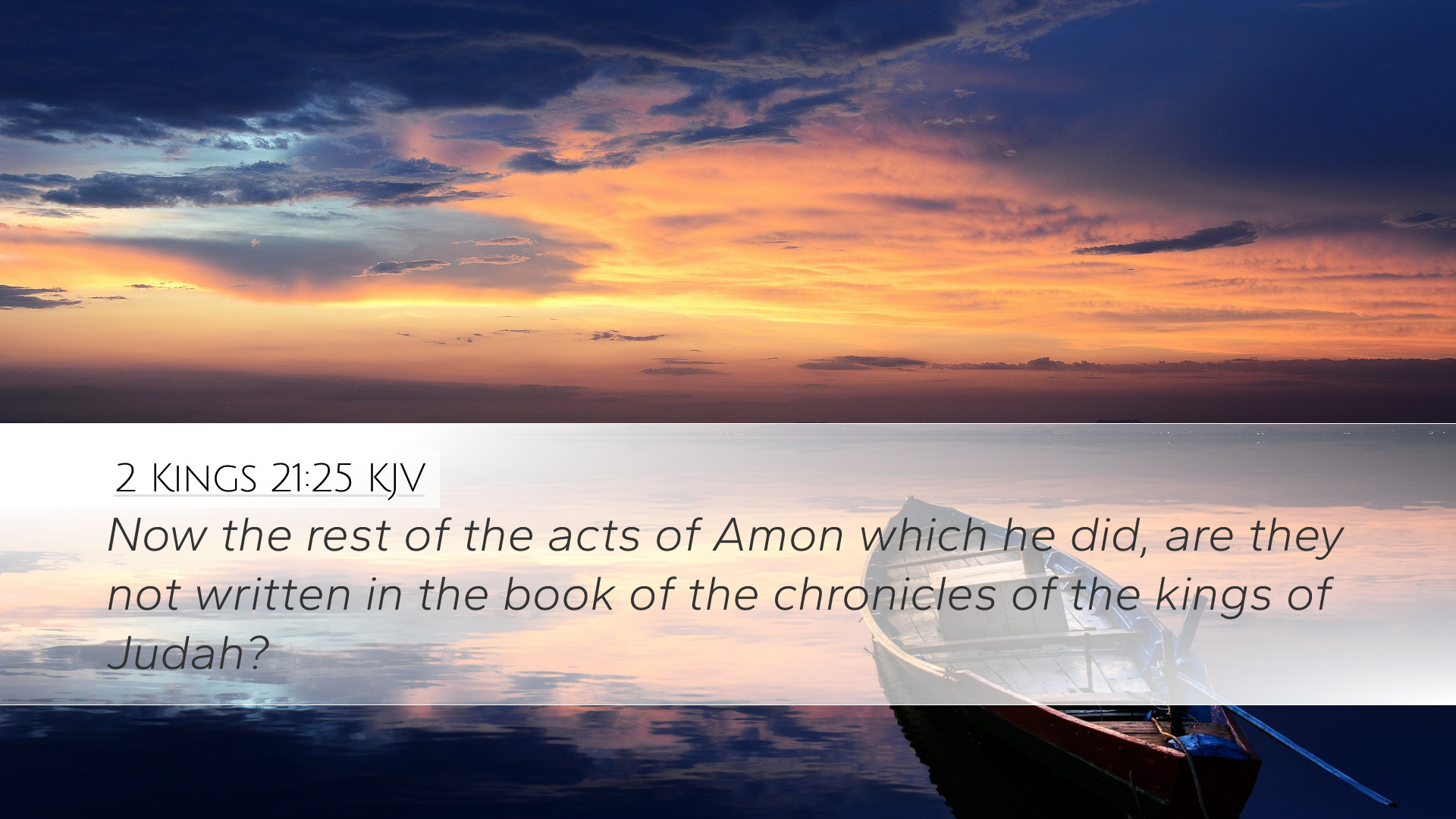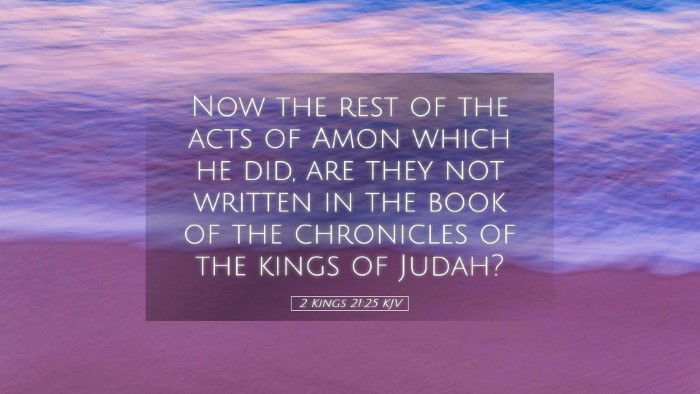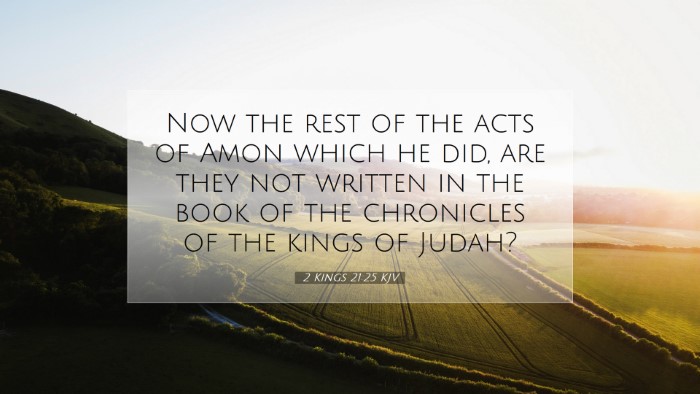Commentary on 2 Kings 21:25
Verse: 2 Kings 21:25 - "But the rest of the acts of Amon, which he did, are they not written in the book of the chronicles of the kings of Judah?"
Introduction
The brief mention of King Amon in 2 Kings 21:25 serves as a reminder of the broader historical and theological context of the kings of Judah. Amon, the son of Manasseh, had a reign marked by idolatry and rebellion against God. This commentary will explore insights from various public domain commentaries, offering a comprehensive theological reflection on this verse, embedding it into the narrative of Judah's kings, and highlighting its implications for modern readers.
Contextual Overview
Amon’s reign is situated within a narrative of decline in the kingdom of Judah. Following the reign of his father Manasseh, who, despite his idolatrous practices, later repented, Amon continued in his father’s sinful footsteps. This passage highlights the significance of his actions and their repercussions on both the nation and his lineage.
Public Domain Insights
-
Matthew Henry:
Henry emphasizes the brevity of Amon's reign and the contrast it presents to that of King Josiah, who followed him. He notes that Amon's unrepentant heart led to his downfall and eventual assassination, which reflects God's judgment on his evil ways.
-
Albert Barnes:
Barnes points out the lack of notable achievements in Amon’s reign compared to the chronicles of the kings. The verse underscores the repetitive cycle of sin and judgment, portraying the fulfillment of the prophetic warnings that came as a consequence of idolatry.
-
Adam Clarke:
Clarke discusses the significance of the term "the book of the chronicles," indicating that although Amon's reign was marked by evil, the historical record preserves the truth of his actions. He reflects on the idea that even those whose lives are unremarkable in faithfulness are part of God's overarching narrative.
Analysis of Amon's Reign
Amon's reign, lasting only two years, is described with few details, primarily focusing on the continuity of idolatry and sin. This brevity and the nature of his actions signal key themes in the historiography of Israel's kings:
- Idolatry as Rebellion: Amon's practices of idol worship were not just personal failings but represent a national rebellion against God. This serves as a warning against the dangers of turning away from God.
- Consequences of Sin: The verse serves to remind readers of the inevitable consequences of sin. Amon's actions had wider implications for the kingdom, leading towards its demise and eventual exile.
- Historical Significance: The verse implies that while Amon may not have accomplished anything noteworthy in God's eyes, his life is recorded for posterity, teaching lessons about leadership and accountability.
Theological Implications
This passage holds significant theological implications, particularly in its reflection on divine justice and the seriousness of sin. It also highlights the importance of preserving historical accounts in understanding God’s dealings with humanity:
- Divine Judgment: Amon's violent end, as noted later in the chapter, is a clear demonstration of divine judgment. The swift fall of a wicked ruler serves as a reminder that God will hold individuals accountable for their actions.
- God's Sovereignty: The mention that Amon’s acts are recorded in "the book of the chronicles" suggests that God is sovereign over history. Nothing occurs outside His knowledge, and every life, whether righteous or wicked, contributes to His divine plan.
- Lessons for Present-Day Believers: Modern readers, particularly pastors and theologians, can glean valuable lessons from Amon's life. The importance of faithfulness, the dangers of complacency, and the need for repentance are timeless messages that resonate even today.
Conclusion
2 Kings 21:25, while a seemingly simple verse, opens up a rich field of theological exploration about the life of Amon, the nature of God's judgment, and the preservation of historical accounts. Through the insights of public domain commentators such as Matthew Henry, Albert Barnes, and Adam Clarke, we see that the story of Amon is more than a historical account; it is a profound narrative that warns against turning away from God and highlights the inevitability of divine justice. For pastors, students, and scholars alike, this passage serves as a key text in understanding the consequences of sin and the importance of righteousness in leadership.


